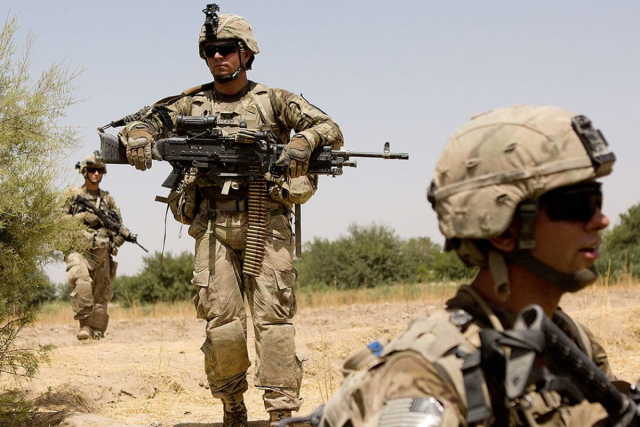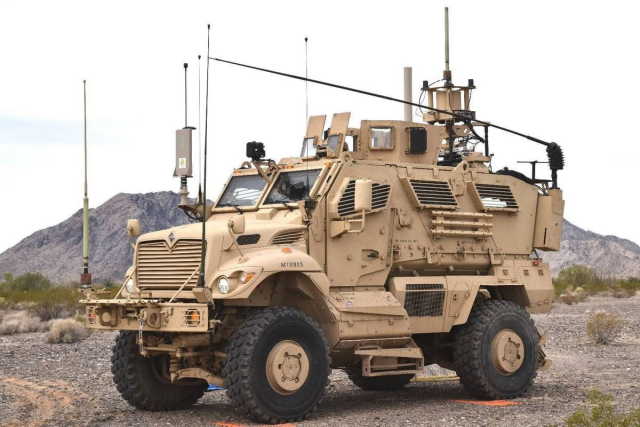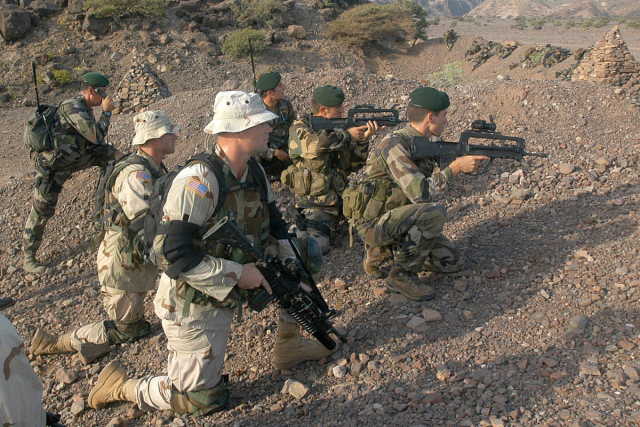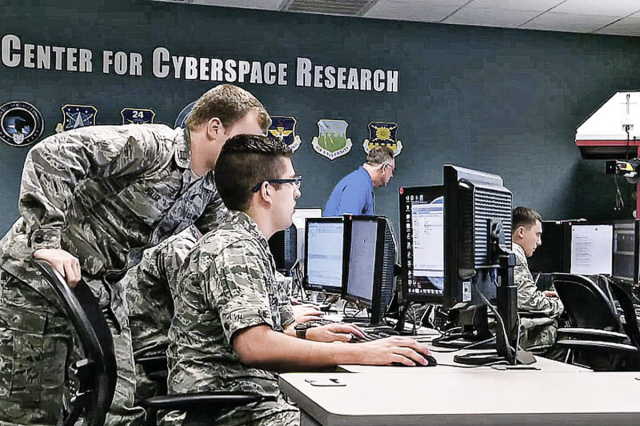When the war is about to begin, the military must first understand the battlefield. An old and common way to do this is forward force operations, or tactical reconnaissance. Nowadays, modern armed forces conduct preparatory operations by analyzing satellite images and collecting signals. Historically, this role has been carried out by very secret special operations groups tasked with gathering intelligence, conducting covert operations, organizing work with sources and preparing follow-up actions. As the global war on terror turned into a long night of searching and eliminating specific targets, these teams perfected the finish aspect while preparation took a back seat.
The author of the article offers his arguments about the impact of the conflict in Ukraine on the future of tactical intelligence,Ethan Brown is a senior fellow in defense studies at the Mike Rogers Center for Intelligence and Global Affairs (Center for the Study of the Presidency and Congress). In the past, I. Brown is a veteran of the special war of the US Air Force. He spent 11 years as a special operations dispatcher. His Twitter Account Is @LibertyStoic.
Russia's invasion of Ukraine is prompting many observers and commanders to reconsider old assumptions and reassess existing methods and capabilities. In this context, defense organizers should study the role of advanced forces in a conflict against a major power such as Russia. Future high-intensity conflicts will require a fundamental change in personnel for the urban combat environment. This will require tools such as electronic warfare, cybersecurity, as well as intelligence gathering capabilities to identify paramilitary and hybrid enemy actions and prepare the battlefield. This will require that the advanced forces are able to disrupt hybrid warfare operations.
Tactical intelligence is not suitable for future conflicts
The ability of tactical intelligence to operate deep behind enemy lines to develop effective, operational intelligence and train troops is severely limited after two decades of counterterrorism influence. The current crisis in Ukraine puts this question to the test: are the groups whose operational maturity has been formed in Afghanistan — an uncontested battlefield — able to use and provide intelligence data in real time about conventional, hybrid and paramilitary enemy actions?
Similarly, the problems faced by advanced forces are also evident in the intelligence community, where the organization of intelligence networks in a hyper-connected world is becoming an increasingly difficult task. It is no coincidence that strategic rivals constantly monitor their citizens and build Internet networks cut off from the rest of the world. The very purpose is to prevent the use of foreign operatives, which also helps to prevent tactical intelligence by strategic competitors.
As an adviser to the special operations squadron told me during a recent interview, "the days of the tattooed non-commissioned officer conducting inconspicuous operations are over. Advanced operations, which we often call "Tac-Recce" ["tactical intelligence"], are changing dramatically." Advanced intelligence needs to redefine commercial cover-ups and "traditional" gender roles, issues that had limited need in the fight against terrorism. Future combat spaces are likely to take place in urban areas dominated by the enemy, which means that "tactical reconnaissance" will be fundamentally different from what it was in the recent past. In Afghanistan, the operational situation and the type of enemy guaranteed the superiority of the West in all areas. The difference in these battle spaces means that the ability to use urban functional intelligence is of paramount importance and will require a paradigm shift.

U.S. Army Unit in Afghanistan
As for the personality, commercial cover is one of the aspects of the modernization of the advanced forces. In Afghanistan, tribal clothing mixed with modern military gear was a common practice. The modern role of advanced groups in urban areas means that any obvious military affiliation immediately compromises the operative. The need to conduct intelligence operations in urban environments requires the diversification of capabilities — human capabilities. A field commander from the special operations community summarized the current human component as follows: "The current enterprise is tied to a production line that effectively produced a "widget" applicable only to counter-terrorist combat spaces."
Advanced forces and means in the future conflict
Advanced teams must think in terms of strategic targeting, military recoil and centers of gravity. These three parameters of intelligence training on the battlefield were not inherent in the counterinsurgency cycle. Thus, the possibilities of destruction in several areas due to enemy lines should dictate how the advanced forces are organized, trained and equipped for future tasks.
These capabilities include electronic warfare: collection, deterrence, manipulation and suppression. Electronic warfare (EW) remains an ability in which the US lags behind, especially with regard to equal armed forces. Like cybernetic warfare, electronic warfare can achieve strategic effects at the tactical level. The advanced use of electronic warfare is an important potential that is missing in the tools of the current advanced forces.

Tactical electronic warfare system of the US Army on a wheelbase
In the modern paradigm, advanced operations will occur just as often, if not more often, in the networks of future war zones. Thus, cyber operations at the tactical level are a tool for creating unfavorable conditions for the enemy. Destruction will be the new standard for advanced groups in conflict, but the consequences will not always lead to the release of high-precision ammunition from an asset conveniently loitering overhead. This means that other levers of the digital revolution should become part of the capabilities of advanced forces, the main of which is cybernetics. The aforementioned isolation of competitors' connectivity highlights why this capability is crucial.
Total superiority in combat space provided tactical reconnaissance mobility in Afghanistan and Iraq. The advanced forces provided logistical support to advancing groups with typical "operational" facing, mostly at will and with prioritization. Future places of potential conflict — Taiwan or Eastern Europe — will not give soldiers in bulletproof vests the same opportunity and the same support for the operation.
Fundamental concepts
The operations of the advanced forces are, in fact, reconnaissance, the definition of targets and the use of the battlefield to achieve broader strategic military goals. The first task remains the most fundamental necessity – to identify and report on the activities of the enemy. As the tactical intelligence environment has changed, the frontline forces must move beyond the "war on terror" template. Like the broader concept of special operations serving as a political hammer, when every problem began to look like a nail, tactical intelligence can no longer be used simply as a finishing tool.

Joint US-French Intelligence Unit
In a strategic competition, advanced forces can be effective in identifying and collecting data on hybrid warfare activities. Notable examples of this type of intelligence include reporting and exploiting efforts to destabilize the enemy, such as those carried out by Russian special units in Ukraine , setting false flags to provoke conflict. Intelligence is taking on a new, much more complex connotation, and collecting the reported data from a reliable source - a well-trained, knowledgeable subject capable of acting beyond the control of the enemy - will undermine the actions of aggressors seeking to destabilize sovereign partners and allies.
Equipping advanced forces to expose the actions, increase the risks and costs of the enemy in achieving his political goals due to new areas of confrontation is a guideline for tactical intelligence in post-counterterrorist operations. Adaptation is already one of the main elements of special purpose units. The hybridity of modern conflicts will require evolution, as will the fight against terrorism. Equipping advanced forces for use in disputed territories, countering disinformation, using hybrid enemy actions and developing their capabilities in the field of cyber and electronic warfare will ensure that this unique type of special warfare will remain effective in future conflicts. Advanced forces are not at risk of being disabled in a world of satellite networks and over-the-horizon capabilities; rather, the presence of a human military asset in restricted areas has become even more important for the threats we face.
According to the materials of the resource taskandpurpose.com
The materials of the article contain exclusively the author's estimates and do not reflect the position of the editorial board of IVi

